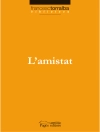This book presents Yi Hwang (1501–1570)—better known by his pen name, Toegye—Korea’s most eminent Confucian philosopher. It is a pioneering study of Toegye’s moral and religious thought that discusses his holistic ideas and experiences as a scholar, thinker, and spiritual practitioner. This study includes Toegye’s major texts, essays, letters, and biographies. Edward Chung explains key concepts, original quotations, annotated notes, and thought-provoking comments to bring this monumental thinker and his work to life. Chung also considers comparative and interreligious perspectives and their contemporary relevance. By offering groundbreaking insights into Neo-Confucianism, this book sheds fresh light on the breadth and depth of Toegye’s ethics and spirituality, and is an important source for scholars and students in Korean and Confucian studies and comparative philosophy and religion.
Inhaltsverzeichnis
1. Introduction: Toegye’s Life and Scholarship.- 2. True Learning.- 3. A Philosophy of Principle: Heaven’s Principle as the Transcendent.- 4. The Four-Seven Debate on Emotions: Moral-Spiritual Meaning and Implication.- 5. Sagehood and Confucian Spirituality.- 6. Self-reflection, Reverence (
Gyeong), and Mind Cultivation (
Simhak).- 7. Toegye’s Love and Spirituality of Nature: Toward a Modern Confucian Ecology.- 8. Transcend the Problem of Evil: A Neo-Confucian and Comparative Interpretation.- 9. Self-transcendence as the Ultimate Reality: A Neo-Confucian and Interreligious Dialogue.- 10. Conclusion: The Modern Relevance and Significance of Toegye’s Thought.
Über den Autor
Edward Y. J. Chung is Asian Studies Director and Professor of Religious Studies at UPEI, Canada. He is the author of
The Great Synthesis of Wang Yangming Neo-Confucianism in Korea (2020),
A Korean Confucian Way of Life and Thought: The Chasnŏngnok
by Yi Hwang (T’oegye) (2016), and
Korean Confucianism: Tradition and Modernity (2015).












